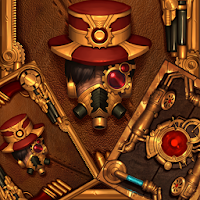Video Game Piracy Enters New Era as Japan Arrests Its First Alleged Modder of Nintendo Switch Consoles
Japanese authorities make a landmark arrest in the fight against video game piracy. For the first time, a suspect has been apprehended for modifying Nintendo Switch consoles to play pirated games.
According to NTV News, a 58-year-old man was taken into custody on January 15th. The arrest stems from alleged violations of the Trademark Act. The individual is accused of altering pre-owned Switch consoles by soldering modified components onto their circuit boards, enabling the execution of unauthorized game software. Authorities claim 27 illegally obtained games were loaded onto each modified console, which were then sold for approximately ¥28,000 ($180 USD) apiece.
The suspect has reportedly confessed to the accusations. Law enforcement is currently investigating potential further infractions.
This arrest highlights the ongoing battle between video game publishers and piracy. Nintendo, in particular, has been aggressively pursuing legal action against piracy. A notable example includes a May 2024 takedown request targeting 8,500 instances of the Yuzu Switch emulator, following its shutdown two months prior. Nintendo's initial lawsuit against the emulator's creator, Tropic Haze, cited the unauthorized distribution of The Legend of Zelda: Tears of the Kingdom—a major 2023 release—over one million times before its official launch.
Legal challenges against piracy are escalating. Previous successful cases include actions against RomUniverse, a game file-sharing website, resulting in multi-million dollar damages awarded to Nintendo in 2018 and 2021. Nintendo also successfully prevented the release of the Dolphin GameCube and Wii emulator on Steam.
Recently, a Nintendo patent lawyer shed light on the company's anti-piracy strategy, emphasizing the link between emulator proliferation and software piracy. Koji Nishiura, Assistant Manager of Nintendo's Intellectual Property Division, stated that while emulators themselves aren't inherently illegal, their usage can readily become unlawful depending on the context.
Latest Articles















![Roblox Forsaken Characters Tier List [UPDATED] (2025)](https://ima.hhn6.com/uploads/18/17380116246797f3e8a8a39.jpg)















